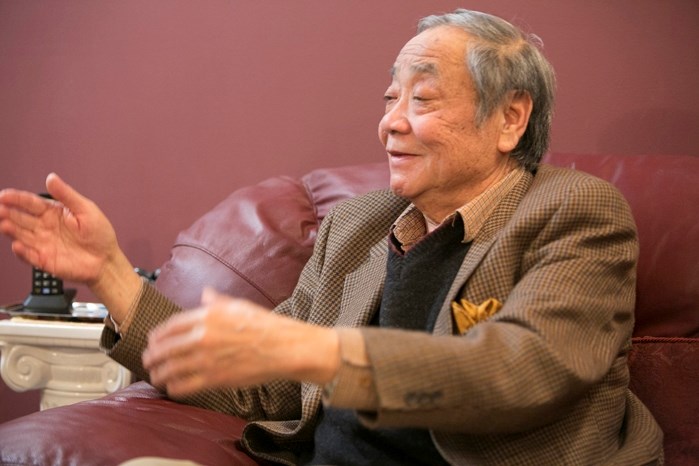There was a proclamation sent out worldwide last week from southeast Asia that the ancient country of Burma had proudly sworn in its first democratically elected parliament in more than a half century.
However, it meant nothing to an exiled prince living in Innisfail, a man once destined to be a king but who today is passionately resolute his people deserve better.
“It is still a military dictatorship in Burma,” said His Royal Highness Prince Hso Khan Pha from his townhouse in Innisfail.
Since 1962, the heavy hand of a military junta had ruled the diverse country of more than 100 ethnic groups, known today as the Republic of the Union of Myanmar. It has been consistently condemned across the world for human rights abuses and turning a blind eye to the widening impoverishment of its more than 51 million citizens.
And while the Feb. 1 inaugural session of the 664-seat parliament in Myanmar's capital, Nay Pyi Taw, was marked with a full score of elected men dancing in celebration while wearing traditional orange and red robes, the exiled Innisfail prince says the proclamation is meaningless, nothing more than “window dressing.
“The army still controls everything. They control what happens and what goes on behind the scenes. It's all window dressing,” said Hso Khan Pha, who is continuing his half-century mission to fight the military junta and have the Tai people of his homeland, the Shan State in northwestern Myanmar, freed from dictatorship. “They (military) still hold 25 per cent of the seats but they might as well have 100 per cent. It really doesn't matter. It is still a military dictatorship.”
Hso Khan Pha said the only just solution he and other Shan State exiles and dissidents will accept is full recognition by the government of the 1947 Panglong agreement, one that saw the end of British colonization and the securing of a unitary Shan State, a largely rural land, which at 155,801 square kilometres, is the largest of 14 administrative states in the country.
The agreement 69 years ago, which is still marked on Feb. 12 as Myanmar Union Day, also gave the Shan people the right to vote for secession after 10 years.
His father, Sao Shwe Thaik, the last Saopha – or king of the Shan principality of Yawnghwe, became the first president of the Union of Burma, and later the speaker of the state's Chamber of Nationalities. He was forcibly removed from office in March 1962 during the country's military coup. He died the following November while being imprisoned, a death Hso Khan Pha calls “murder.” He contends the killing was followed with thousands more, as well as countless rapes, village burnings and numerous other atrocities, at the hands of the military junta.
“The Burmese government never lived up to the agreement that we had with them. As far as I am concerned the treaty doesn't apply and we are not part of Burma,” he said, adding the treaty, which his father agreed to, would have made the Shan State an equal partner with the rest of the states in the country.
Hso Khan Pha was in university in England at the time of the military coup, which claimed the life of a younger brother, and forcibly scattered the rest of his family, including his mother Sao Nang Hearn Kham, who ultimately settled in Canada and became active in the cause to liberate the Shan people.
Hso Khan Pha, who today is known to many – including friends in Innisfail – as Tiger, became a widely respected geological consultant in the mining and oil and gas industries. He has travelled to many parts of Canada for his professional work. However, his ongoing quest to have Shan State become and independent country has been paramount. He has taken the case to many heads of states in western countries, and even to the United Nations. In 2005, Shan State exiles and sympathizers proclaimed him Head of State and President of the Federated Shan States.
Tiger, who is now 77 years old, has been living quietly alone in Innisfail since 2000. He is semi-retired from his geological consulting work, and once in a while he can be found having a meal at the Innisfail Royal Canadian Legion.
With the battered provincial economy snatching away most work opportunities, he has plenty of time to correspond through emails and letters with Shan State exiles and supporters.
“It costs money, whether you like it or not,” said Tiger of his new challenge to secure the necessary money to effectively continue with his sacred Shan State mission.
“If my people get the funding we will continue fighting, even after 200 years, yes, or 300 years or 1,000 years,” he emphasized, noting he has never gone back to his homeland since the 1962 junta takeover.
“I don't have to try to keep the cause alive. The cause keeps itself alive,” he added. “I don't have to do anything except give it support. It may never be in my lifetime, but history changes.”
Hso Khan Pha
"If my people get the funding we will continue fighting, even after 200 years, yes, or 300 years or 1,000 years."



